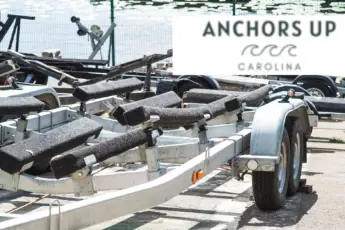One of the most irie sounds when boating is hearing the low oil alarm on a two stroke engine. Without question, the high pitched squeal inflicts panic and makes you wonder at first what is going on. However, after you realize the audible screech is a result of low oil levels, the issue can be remedied. However, that means you need to carry extra two stroke oil on hand. When you hear an outboard oil warning alarm, here is how to identify it and what to do.
Why Do 2 Stroke Oil Alarms Sound
The reason that two stroke oil alarms sound is a result of low oil levels in the oil reservoir beneath the cowling.
Undoubtedly, the alarms serve an important purpose. The purpose is to prevent the motor from being seized if the oil reservoir runs dry.
The alarm will frighten passengers because it is incredibly high pitched, which is why it is best avoided. As a passenger, the fear is caused by the unknown. A multitude of scenarios can play through their head. For this reason, the oil levels should be checked before departing the dock.
How To Prevent The Outboard Oil Warning Alarm From Sounding
Without a doubt, you should avoid the alarm from sounding in the first place. Here are ways to prevent your outboard motor low oil alarm from going off.
Check And Fill The Reservoir Before Heading Out On The Water
The best preventative measure to avoid the alarm from going off while you’re on the water is to check and fill the reservoir before heading out.
Fortunately, the oil level is easily checked by opening the cap and measuring the dipstick. If the oil is below the max fill line, add enough oil so it reaches this point. However, avoid overfilling the reservoir as it could leak or cause engine damage.
Understand The Impacts Of Rough Seas
I ran my two-stroke Mercury outboard well offshore on a weekly basis, targeting pelagic fish in the blue water. The combination of the run time and rough seas frequently led my oil alarm to sound.
Be aware that rocking up and down large waves is likely to cause your 2 stroke oil alarm to go off. The reason this happens is that the oil sloshing within the reservoir will periodically drop below the point that triggers the horn.
There are two ways to prevent this from occurring. The first is to top off the oil after a long run. Secondly, avoid heading out in rough seas. However for me, I had a strong desire to fish, so I braved the elements and the alarm.
Ensure That The Reservoir Is Not Leaking
I’ll be the first to admit the cap on my oil reservoir would drip with the motor trimmed in the up position. Despite taking multiple approaches to remedy the problem, it was continuous.
However, reservoirs leak for more reasons than just a faulty cap. The hoses below are also culprits for oil drips and leaks within the cowling. I recommend inspecting your 2-stroke motor periodically for leaks and making the necessary repairs.
In the event you don’t fix a leak, it will likely cause your motor to smoke from burning oil, and you’re more likely to hear the alarm frequently.
Considerations For Avoiding A Low Oil Alarm In A 2 Stroke
Without a doubt, you should take the necessary measures to first prevent a low alarm and secondly to remedy the alarm. Here are two considerations for managing oil alarms on 2-stroke boat motors.
Never Leave The Dock Without Extra Oil
I never headed out on the water without bringing extra two stroke oil in the event that I needed to top it off.
With that said, you must make it a habit to bring oil onboard with you at all times. Remember, it is easy to add oil when needed. However, it should be addressed dockside or while the boats are on the trailer.
The Alarm Will Stop Sounding When The Oil Level Is Safe
Don’t worry the kids, friends, and other family members will stop panicking when the alarm stops.
Rest assured, the alarm will stop sounding once the reservoir is topped off to safe levels. Trust me, I couldn’t stand the sound of the alarm, and I am a former captain. Your passengers will be beyond terrified of the scream, so it’s best remedied quickly.
Prevent And Address Outboard Motor Low Oil Alarms
Without question, the best approach is to prevent a low oil alarm; however, it does happen from time to time. Importantly, remember to bring spare oil aboard the boat for each trip. If you have extra oil, you won’t need to worry about running into a true emergency. The alarm serves the purpose of preventing the motor from seizing if you add oil when it sounds.






